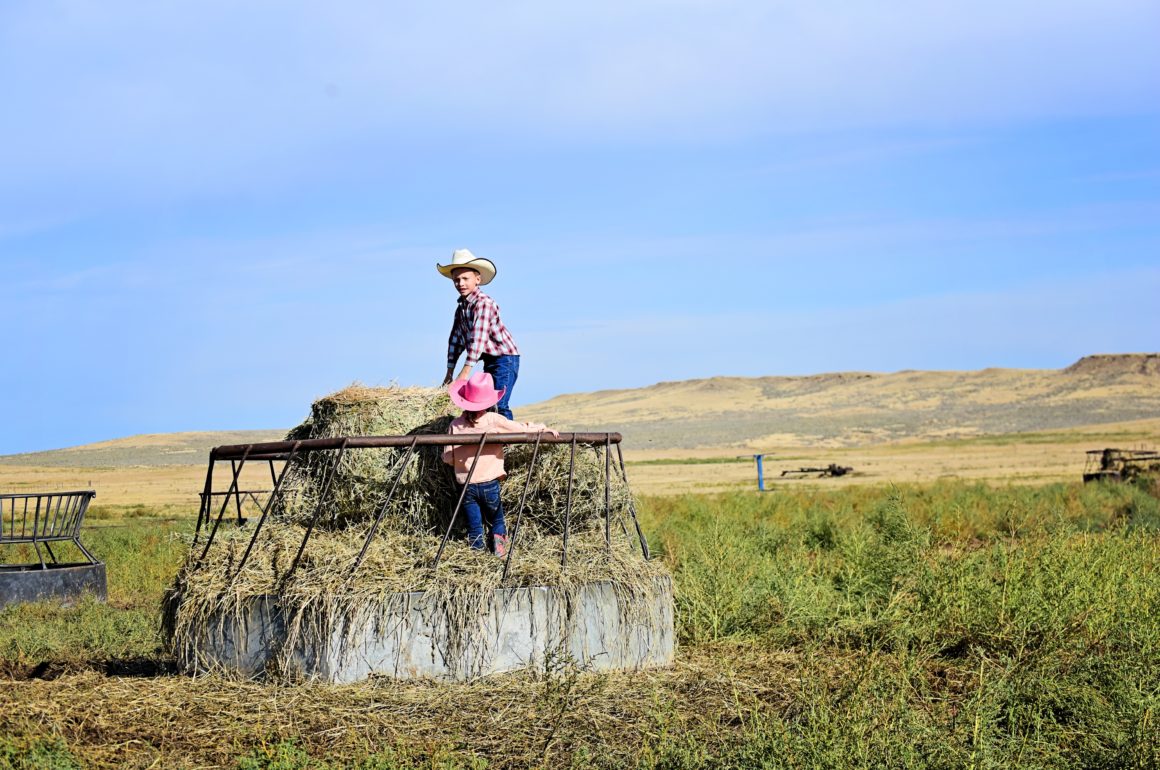
By Laura Nowlin
To help young ranchers establish themselves, and to give current ranchers a bit more security, a group of central Montanans are looking into creating a grassbank — a piece of land where livestock from several producers, who commit to conservation practices, could graze.
“There are several younger couples in Petroleum County or Fergus County that are trying to do both - trying to find grass to lease and work day jobs,” one Winnett-area rancher said in a recent survey by ACES, the Winnett community group investigating the idea. “They want to expand but don’t have the opportunity because there’s no grass available or it’s priced too high out of their price range to make it work.”
The issues most prevalent here mirror those of the rest of the Northern Great Plains: aging population of ranchers, successful ranch transition, and high land prices. Prices for grazing land increase unpredictably as area ranches are purchased by investors or as recreational retreats.
Shaylie (9), Cami (7), and Brody (4) Ahlgren trailing cattle home for the winter. Photo courtesy of Reba Ahlgren
“Mostly when the ranches come up for sale, out-of-staters buy it and … they use it for recreational purposes mostly, like hunting,” another rancher said in the survey. “Those people don’t volunteer in the community. … They don’t buy groceries in the store year-round or use the post office year-round and don’t have kids in school. It’s a loss of population that [could have helped] keep the community going.”
What is a Grassbank?
A grassbank is a piece of land where grass is leased to multiple ranchers for a reduced rate. These ranchers earn reduced grazing fees by implementing conservation practices on their own private land. By managing for both conservation and community, a grassbank benefits wildlife and natural resources while also increasing economic opportunities in ranching communities.
Unlike preserves that set aside land to conserve wildlife, the grassbank model works to conserve a much larger landscape than a single property on its own — it works effectively on a scale that is both ecologically and socially relevant.
“It’s all about ranching, conservation, and community,” Leo Barthelmess, a board member of the Ranchers Stewardship Alliance (RSA), told a group of Winnett ACES last winter.
Because the model is based on keeping working lands in agriculture, the Winnett ACES think that a grassbank will achieve both conservation and community resilience.
Collaboration with New Groups
Is this an idea that can work? Can a group from a small, rural community, pull off creating its own grassbank?
Not without help. And in the last year, the ACES Land Committee has worked more than 1,500 hours examining this idea and its benefits for the Central Montana community.
Riders headed to check cattle through the deep snow of winter 2018. Photo courtesy of Sarah Browning
A successful grassbank already exists in southern Phillips County, to the north of Winnett. The Nature Conservancy owns and operates the Matador Ranch, which currently leases to 18 different “grassbankers” – those who run their cattle on the land.. This approach gives several producers the opportunity for more grass, which stabilizes these operations, and in turn, stabilizes the local community.
Ranching, Conservation, Community
There is a movement that encompasses people from all backgrounds who are working together on community and conservation projects for the benefit of both the people and the land. This is what ACES is looking for in the Winnett community – a way to continue a way of life built on generations of traditions and values that consider community and land stewardship intertwined.
The ACES has found members of this movement in other parts of Montana and is seeking their guidance. The Ranchers Stewardship Alliance is a rancher-led conservation organization based in Phillips County. The RSA mission “strives to feed the world, preserve our prairie neighborhood, and nurture the next generation. We believe this is conservation done right.”
While the RSA works in eastern Montana, the Blackfoot Challenge began in western Montana 25 years ago, perhaps planting the seed for much of the collaborative conservation work centered around a shared community vision that can be seen around the west today.
These groups represent a movement that has taken place within agriculture and conservation in the last 15 to 20 years across the West.
“The issues that are important are endless, but the values and hope for the land and for our families and communities are the same,” said David Mannix, a Blackfoot Challenge board member.
ACES has invited several other groups to the table to share ideas, building new, and nontraditional networks for ranchers. The World Wildlife Fund, the Devils’ Kitchen Wildlife Management Team, the U.S. Partners for Fish and Wildlife, the Malpai Borderlands Group, the South Dakota Grasslands Coalition, and the Montana Community Foundation have also all been to Winnett in the last year.
These groups all share the goals of maintaining agricultural traditions and the rural values that have shaped the communities of Central Montana.
“This is a group committed to doing something beyond just their own places,” Richard Jeo, director of The Nature Conservancy in Montana, said of ACES.
So stay tuned to Central Montana and the Winnett ACES grassbank.
“This will not be a quick success story,” said Diane Ahlgren of ACES, a Winnett-area rancher. “But if perseverance and enthusiasm continue at the current level, someday the ACES might own property that can be used and managed not only for grazing and keeping producers producing, but also education, wildlife, and continued generational ranching that is Petroleum County.”
Laura Nowlin is the coordinator for the Musselshell Watershed Coalition and a member of ACES. She lives on the family ranch with her husband and two children north of Winnett on a tributary to the Musselshell River.
Feature photo by Eliza Wiley, courtesy of Montana Watershed Coordination Council.
Got something to say to Prairie Populist? Send news tips, story ideas and comments to [email protected].

